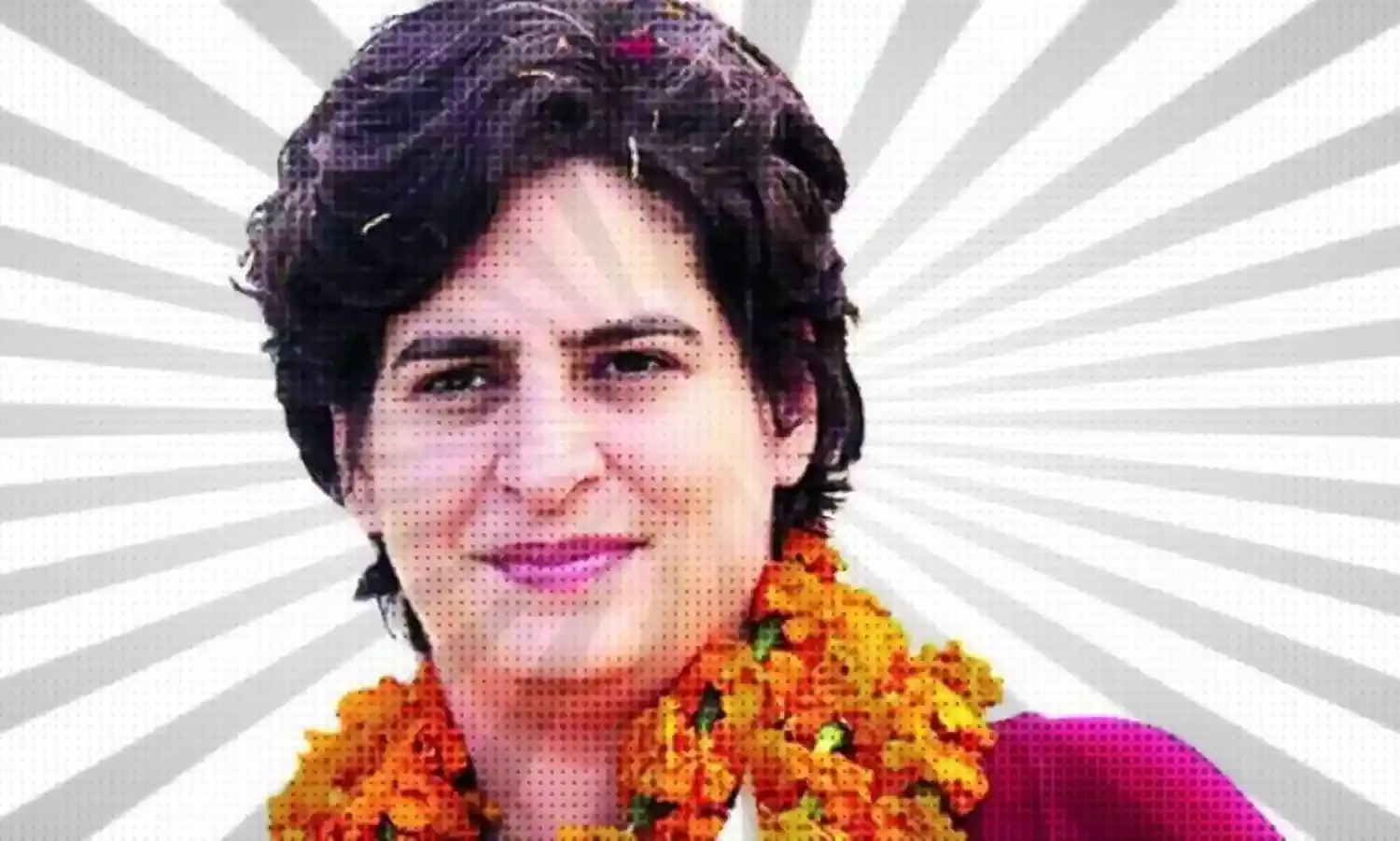Will Priyanka Precipitate a Congress Windfall or Divide Opposition Votes in UP?
A tacit Congress and SP-BSP understanding could bring the BJP 50 seats down here

LUCKNOW: In politics, it is said, a week can last a lifetime. When news broke on the afternoon of January 22 of Priyanka Gandhi's formal entry into politics, it certainly set the cat among the pigeons in Uttar Pradesh, the country's most crucial state in electoral terms.
Whatever the ultimate outcome of Priyanka’s political debut, it has certainly upset existing political dynamics in the state.
For years the Nehru-Gandhi family had toyed with the idea of launching the political career of Priyanka Gandhi whom many consider the most charismatic heir to the party. But for some or other reason, till now she never took the plunge.
This writer spent the last three days travelling through the districts of Partapgarh and Raibareilly, home turf of the country’s premier political family.
There is no denying that Priyanka’s formal anointment as a Congress general secretary has generated widespread enthusiasm among partymen and their supporters, in Uttar Pradesh and across the country.
It is also clear that as a campaigner she will be considerably more effective than anyone else in the party. Many feel Priyanka Gandhi has the makings of a pan Indian star campaigner.
Speculation is also rife in the countryside here that her cousin Varun Gandhi, who is a BJP MP from neighbouring Sultanpur, may also join his estranged cousins. This would be a double gain for the Congress, whose presence in UP has been sliding from bad to worse these past few years.
A crossection of people spoken to were unanimous in their view that Priyanka, who reminds them of her illustrious grandmother Indira Gandhi, will play a major role now in the political arena of the Hindi heartland. They accepted however that it would take time, about five or six years, for her to resurrect the Congress party in UP, where it has been in limbo ever since the late 1980s.
"Her entry has filled party workers with a lot of josh (enthusiasm),” remarked Saeed Khan who runs a successful construction business in Raibareilly, but reluctantly conceded that “her party organisation is still not in a position to take on the new SP-BSP alliance, or even the BJP.”
Khan pointed out that apart from about half a dozen constituencies in the Avadh belt, even diehard Congress supporters will face a dilemma, because voting for the Congress could mean indirectly helping the BJP. Muslims in particular were quite apprehensive, he concluded, of this likely fallout of a resurgent Congress.
At Manikpur township in neighbouring Partpgarh, famous for its chausa mangoes, Syed Hussain who is a zamindar and Congress loyalist for nearly four decades now, said, “I hope the Congress does not commit the folly of spreading itself too thin over the state. It should instead focus just on 15 to 18 seats, mostly in eastern UP.”
The question being hotly debated in political circles here is whether the resurgent Congress would damage the BJP more or the BSP-SP alliance.
Hussain was quite clear: “Congress sympathisers especially Brahmans see Priyanka as a champion in a long-distance race. The Brahman elite are already rooting for her. But the bulk of the Brahman voters will stay with the BJP at least for the parliamentary poll. She will however definitely dent BJP support among the upper castes.”
On the other hand, he added, the party could also divide Muslim votes especially in eastern UP.
According to Atul Chandra, formerly with The Times of India in Lucknow, the Congress’ vote share shrank to about 6.2 percent in the 2017 assembly polls, and many voters especially Muslims who were enthused now by the resurgent Congress faced a dilemma. In the absence of any substantive vote bank for the Congress such voters would in all likelihood choose to side with the alliance, rather than risk a division of opposition votes.
Even if Priyanka helps double the party's vote share in UP, according to Chandra, it will not bring any substantive addition to its seat tally in the state.
Chandra pointed out that if the Congress and the SP-BSP alliance could cobble together some sort of tacit understanding, it could well push down the BJP to an unenviable position in its own bastion. In such an eventuality the BJP may find it difficult to cross even 20 seats in the parliamentary elections - putting it about 50 seats down in just one state.
While state Congress leaders can already be seen roaming with a newfound swagger in their step, at the grassroots interestingly one cannot help but see a more cautious optimism. A sizeable section of Congress sympathisers are of the opinion that instead of choosing the path of confrontation, Rahul Gandhi should in the long term forge an alliance with Akhilesh Yadav with whom he shares good chemistry.
Through such an alliance the two youngsters could propose a viable alternative to voters when state assembly elections are held in 2022.
The Congress party’s regional satraps seldom fail to display an inexplicable arrogance which always costs the party quite heavily. This time too it could prove to be the party’s undoing. It remains to be seen whether the Nehru-Gandhi siblings succeed in curbing this tendency within their party, and inculcate a more accommodative approach, to the art of alliance politics.



